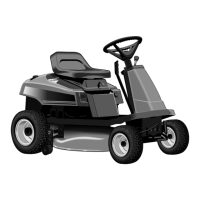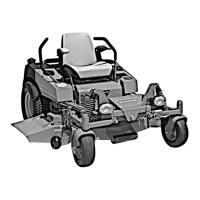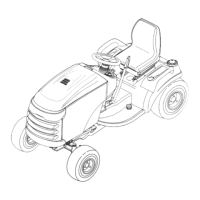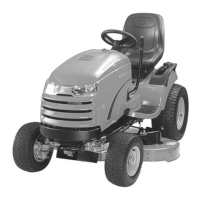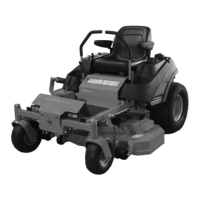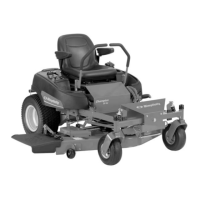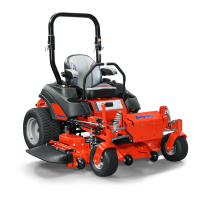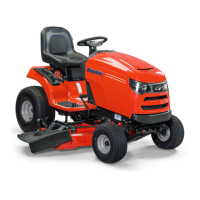3 - 3
3 Maintenance
Storage / Chart
Starting After Long Term Storage
Before starting the rider after it has been stored for a long period of time, perform the following steps:
1. Remove the blocks from under the rider.
2. Install the battery if it was removed.
3. Unplug the exhaust outlet and air cleaner.
4. Fill the fuel tank with fresh gasoline. See engine manual for recommendations.
5. Check crankcase oil level and add proper oil if necessary.
6. Inflate tires to proper pressure.
7. Check all fluid levels.
8. Start the engine and let it run slowly until warm. DO NOT run at high speed immediately after starting. Be sure to
run engine only outdoors or in well ventilated areas.
B. PREVENTIVE MAINTENANCE CHART
The following schedule should be followed for normal care of your rider and mower. You will need to keep a record of
your operating time. Determining operating time is easily accomplished by multiplying the time it takes to do one job
by the number of times you’ve done the job, or you can install the optional hour meter.
Before Before Every Every 25 Every 100 Spring
Safety Items First Use Each Use 5 Hours Hours Hours & Fall
Check safety interlock system. ● ●
Check rider brakes. ● ●
Check mower blade stopping time. ●●
Normal Care Items
Check rider & mower for loose hardware. ●● ●
Check engine oil level.* ●● ● ●
Check engine & air filter.* ***●
Change engine oil and filter. (Select Models)* ** ***Every 50 hrs. ***●
Lubricate rider & mower. ***●
Check fluid levels & tire pressure ●● **●
Change transmission fluid.
(Hydro only)****
Only if transaxle is serviced.
Check fuel filter. ●
Clean battery & cables ●
Clean/sharpen blades. ●
Inspect spark plug.* ●
* See the engine manufacturer's owner's manual.
** Change original engine oil after first 5 hours of operation.
*** More often in hot (over 85° F: 30° C) weather or dusty operating conditions.
Tire Pressure
Front 12-16 psi (82-103 kPa)
Rear 6-8 psi (41-55 kPa)
TIRE PRESSURE
Front and rear tires should be checked periodically to
ensure that proper tire pressure is maintained. Note that
these pressures differ slightly from the “Max Inflation”
stamped on the side-wall of the tire. Keeping the tires
properly inflated to these settings helps provide proper
traction, extend tire life, and improved cut quality.
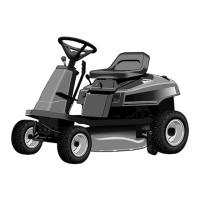
